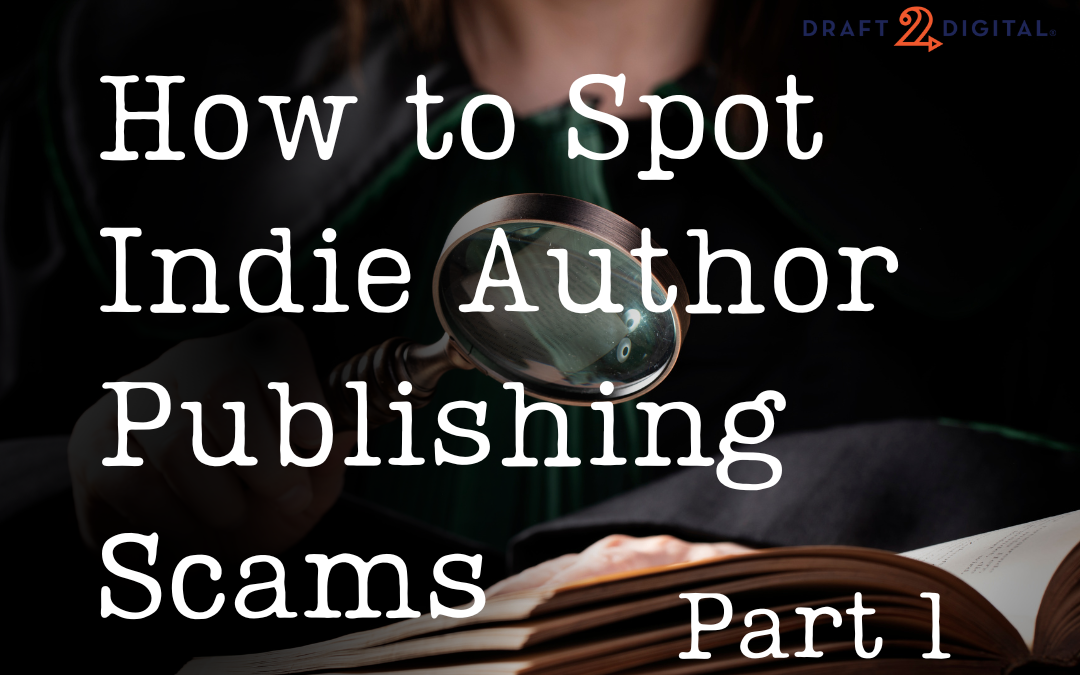Stop me if this sounds familiar: as a child, you submit a poem to a national anthology publication. Lo and behold, your poem is accepted! Celebration ensues. You must be a prodigy! Your supportive parents obligingly pay the $50 to purchase the hefty tome, all for the pleasure of seeing your budding talent in print.
When you receive the anthology, you start to realize … The poems within its pages are terrible. (Apart from yours, of course!) Not only that, but there are LOTS of them. What kind of vetting process does the anthology have, anyway? Turns out—virtually none.
If this happened to you at any age, you are a fellow victim of the decades-old “poetry anthology” scam, which has been around since at least the 1920s—and likely far earlier. The age of the internet has brought a fresh spin on old classics like this one, along with a new generation of scams and bogus services designed to prey on any aspiring author’s Achilles heel: the desire to see their work published.
These scams can’t all be listed by name, in part because they seem to pop up every week under a new alias. The good news is that they generally share some identifiable traits that make them easy to avoid once you know what you’re looking for.
By the way, we’re just scratching the surface in this two-part series. If you have questions about a specific company or resource, we highly recommend checking with Writer Beware or ALLi, two watchdog groups that keep a close eye on the latest and greatest in indie author scams.
Vanity presses
In general, legitimate publishers pay you, not the other way around. That’s because they make money by selling your books to readers, not by selling you services. Publishers who charge you for services rendered are generally scam-like presses that earn their money from you, the author, rather than from readers.
Vanity presses, like the ones who run the famous “poetry anthology,” usually charge an overly expensive rate per book. Author Solutions is one of the more notorious bad actors, but there are many out there, and new ones (or old ones with new names) seem to pop up all the time.
That said, some legitimate hybrid publishers in the indie author space will ask you to front some of the cost to produce and market your book. So what’s the difference between a predatory vanity press and a legitimate hybrid publisher? Namely, quality control (or lack thereof). If an imprint accepts virtually every submission, it’s a vanity press. Legitimate hybrid publishers will only accept books that meet their internal requirements. (For more on hybrid publishing, check out Reedsy’s excellent post on the subject.)
How to spot the scam:
- A publisher you’ve never heard of approaches you, an unknown indie author, about a “book deal” that requires up-front investment from you
- The publishing house doesn’t come up in a Google search, or the only result is their own website
Literary agents
Like publishers, legitimate agents make their money only after they’ve sold your book. In this case, they usually earn a percentage of the deal they strike with a traditional publisher on your behalf.
Avoid so-called “agents” who charge money to read, evaluate, or submit your work. Even if you work with a bonafide agent, check their references before you commit. Some of the worse agents out there will send your manuscript to every publisher they can find rather than sending mindfully to publishing houses that are a good fit. Associating with agents like this can quickly tarnish your reputation, so consider your choice of agent carefully.
With both agents and publishers, it’s important to know that legitimate professionals will not contact you out of the blue to offer you a book deal. Agents will only reach out directly to authors who have already achieved significant success. Most of the time, the only way to get an agent’s attention is to write a query letter and submit it through the proper channels.
Real agents won’t ask you to pay anything out of pocket for their services. Even if they provide critiques and guidance before they send your book to a publisher, an agent earns their money by negotiating a book deal, not through editing or proofreading services. Reedsy keeps a database of hundreds of qualified literary agents, so you’re better off starting there if you’re looking for representation.
How to spot the scam:
- An agent charges a “reading fee” or dings you for other incidentals such as editing
- An agent claims to represent a Big Five publisher and is “scouting” unknown indies for talent
- An agent doesn’t have references or verifiable industry contacts to share
That’s it for now! Join us next time for Part 2 of our series on publishing scams that target indie authors.
